Isotopes
Isotopes are atoms of the same element that have the same number of protons but different numbers of neutrons. This means that isotopes of the same element have the same atomic number but different mass numbers. The different number of neutrons in isotopes results in variations in atomic mass.
Key Points to Remember:
- Isotopes of an element have the same number of protons but different numbers of neutrons.
- Isotopes of the same element have the same atomic number but different mass numbers.
- Differences in the number of neutrons result in variations in atomic mass.
Examples of Isotopes:
One common example of isotopes is carbon. Carbon-12, Carbon-13, and Carbon-14 are three isotopes of carbon. They all have 6 protons, but the number of neutrons differs, giving each isotope a different mass number.
Study Guide Questions:
- What are isotopes?
- Explain the similarities and differences between isotopes of the same element.
- Provide examples of isotopes and explain their differences in terms of atomic structure.
- How do isotopes contribute to variations in atomic mass?
Review Quiz:
- What is the defining characteristic of isotopes?
- True or False: Isotopes of the same element have different atomic numbers.
- Give an example of an isotope and explain its atomic structure.
- How do isotopes contribute to the variations in atomic mass of an element?
[Isotopes] Related Worksheets and Study Guides:
.◂Science Worksheets and Study Guides Fourth Grade. Animal Growth and Reproduction
Study Guide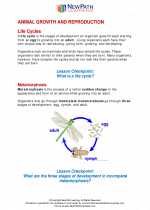 Animal Growth and Reproduction
Animal Growth and Reproduction  Activity Lesson
Activity Lesson Animal Growth & Reproduction
Animal Growth & Reproduction  Worksheet/Answer key
Worksheet/Answer key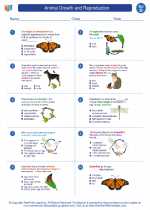 Animal Growth and Reproduction
Animal Growth and Reproduction  Worksheet/Answer key
Worksheet/Answer key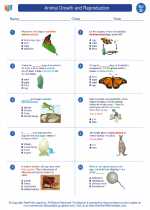 Animal Growth and Reproduction
Animal Growth and Reproduction  Worksheet/Answer key
Worksheet/Answer key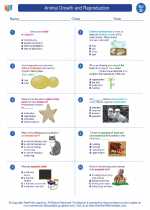 Animal Growth and Reproduction
Animal Growth and Reproduction  Worksheet/Answer key
Worksheet/Answer key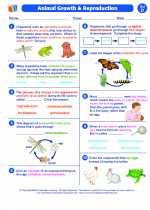 Animal Growth and Reproduction
Animal Growth and Reproduction  Vocabulary/Answer key
Vocabulary/Answer key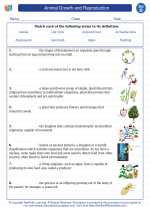 Animal Growth and Reproduction
Animal Growth and Reproduction  Vocabulary/Answer key
Vocabulary/Answer key Animal Growth and Reproduction
Animal Growth and Reproduction  Vocabulary/Answer key
Vocabulary/Answer key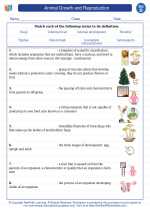 Animal Growth and Reproduction
Animal Growth and Reproduction  Vocabulary/Answer key
Vocabulary/Answer key Animal Growth and Reproduction
Animal Growth and Reproduction  Vocabulary/Answer key
Vocabulary/Answer key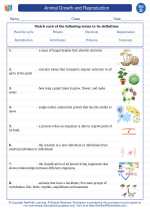 Animal Growth and Reproduction
Animal Growth and Reproduction 

 Activity Lesson
Activity Lesson
 Worksheet/Answer key
Worksheet/Answer key
 Worksheet/Answer key
Worksheet/Answer key
 Worksheet/Answer key
Worksheet/Answer key
 Worksheet/Answer key
Worksheet/Answer key
 Vocabulary/Answer key
Vocabulary/Answer key
 Vocabulary/Answer key
Vocabulary/Answer key
 Vocabulary/Answer key
Vocabulary/Answer key
 Vocabulary/Answer key
Vocabulary/Answer key
 Vocabulary/Answer key
Vocabulary/Answer key

The resources above cover the following skills:
Life Science
Heredity and Reproduction - A. Offspring of plants and animals are similar to, but not exactly like, their parents or each other. B. Life cycles vary among organisms, but reproduction is a major stage in the life cycle of all organisms.
Compare and contrast the major stages in the life cycles of Florida plants and animals, such as those that undergo incomplete and complete metamorphosis, and flowering and nonflowering seed-bearing plants.